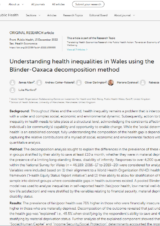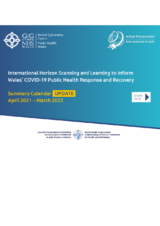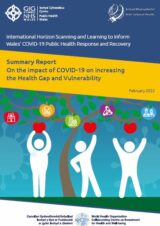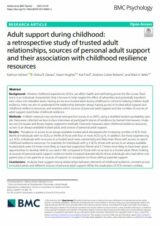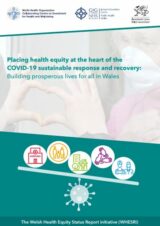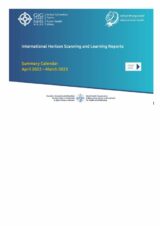
International Horizon Scanning and Learning Summary Calendar 2022/23
This International Horizon Scanning and Learning Summary Calendar is the third in the series, following the Summary Calendars from 2020/21 and 2021/22. This Summary Calendar has collated, synthesised, and presented a clear and concise synopsis of the five International Horizon Scanning Reports over the past year, since April 2022 through to March 2023. In addition, the two summary reports (published in 2022) are included. The International Horizon Scanning and Learning work stream has proved to showcase informative and impactful research whilst collating data from other countries and has provided guidance, recommendations, and useful insights regarding the evolving nature and uncertainties of emerging public health topics, which has sought to improve and inform such actions and approaches in Wales.
The summary aims to inform a succinct overview of comprehensive, coherent, inclusive and evidence-informed policy action, which has supported and continues to support the national strategies towards a healthier, more equal, resilient, prosperous and globally responsible Wales. This calendar includes key messages and key recommendations from the high level synthesis pages of each International Horizon Scanning report.
Themes include:
• Intermediate care
• The cost of living crisis
• COVID-proofing the educational environment: 4-18 years
• Early childhood education and care
• Communication campaigns for vaccine acceptance
• The impact of COVID-19 on mental health and increasing vulnerability
• The impact of COVID-19 on increasing the health gap and vulnerability

